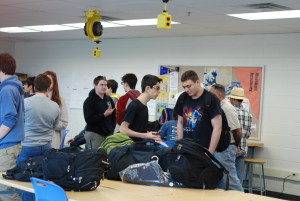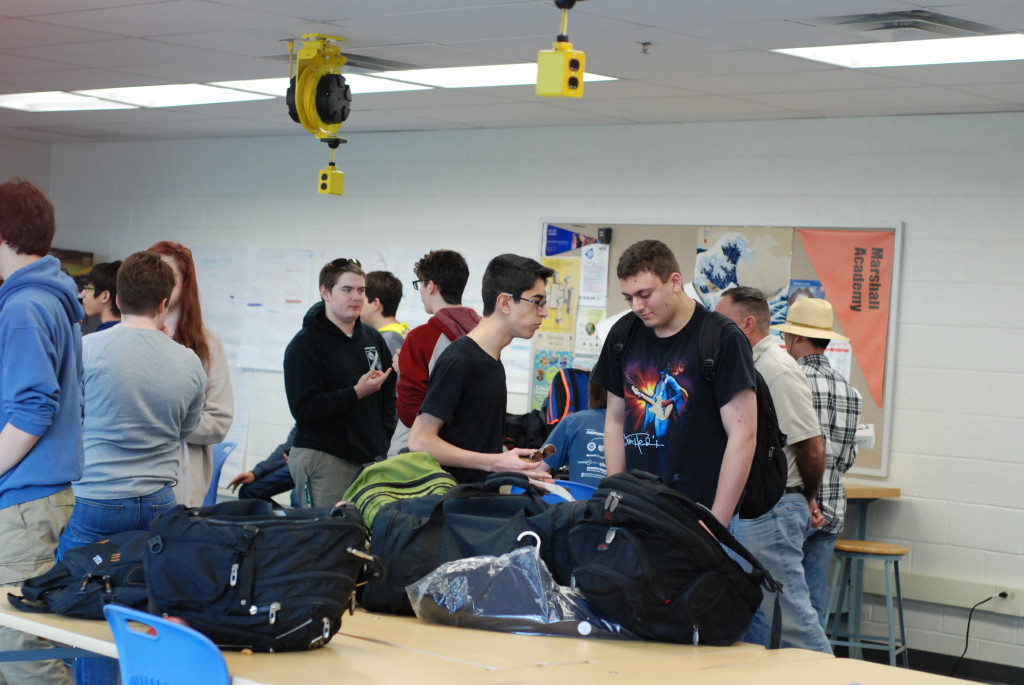
On Feb. 18, Cyber Security participated in the Cyberpatriot VIII competition, with two teams competing in state open divisions. The two teams, 08-1985, consisting of juniors Quiana Dang, Sieun Lee and David Randazzo, and seniors Sean Anderson and Jasper Woolley, and 08-1889 made up of seniors Kam Leung, Kai Akbel, Scott Sabado, Will Au and Andrew Morrissey, who scored 276 and 265 respectively out of 300 total points, placing at the highest tier, platinum.
Cyberpatriot competitions consist of teams downloading virtual images of operating systems with known vulnerabilities that each team must find while maintaining other computer services, like email. In order to take part and compete in Cyberpatriot, members must participate through the cyber security club, which registers teams of around five people.
“A virtual image is basically a virtual computer: it uses resources from the host computer’s hardware and runs a separate operating system inside your own operating system,” Dang said. “It’s really a matter of system hardening, competitors need to make the virtual machine as secure as possible”
The entirety of the competition consists of two events that add together for a final score: Cisco Networking Challenge, where team members must take a quiz and secure setting up a network, and Virtual Image, or securing a virtual computer.
“In competitions, members are tasked with securing two to three virtual computers, also known as virtual machines,” Dang said. “These virtual machines are either based off of Windows/Windows Server or Ubuntu Linux operating systems.”
The task in securing virtual images stems from their own vulnerabilities in programming, whose scores add up to 100 points per image at a maximum of three images per round. On the other hand, the Networking Challenge is made up of a quiz worth 33 points and a Packet Tracer which involves setting up a secure network under specific directions, which can range in point value from 42 to 67 points for a max total, combined with virtual images, of 400 points.
“We’ve been doing well this year; our newbie teams have improved by leagues and one of our teams received 1st place in the state for their competition difficulty tier,” Dang said.
Not only did the Cyber Security Club improve their competition skills, but also set themselves up for potential future advantages through their increased underclassmen numbers as opposed to the majority upperclassmen members the year prior.
“We had a lot more newer members this year than last year, and a surprising number of us made it to regionals, considering that this was the first year that the club was run without any of its original members,” sophomore Devina Choksi said.
The numerous underclassmen members allows the club to take the lost Cyberpatriot competition as a learning experience for the future of the Cyber Security club.
“I think the whole team did the best they could do, for some of us it was the best we’ve ever done,” junior Sieun Lee said.

